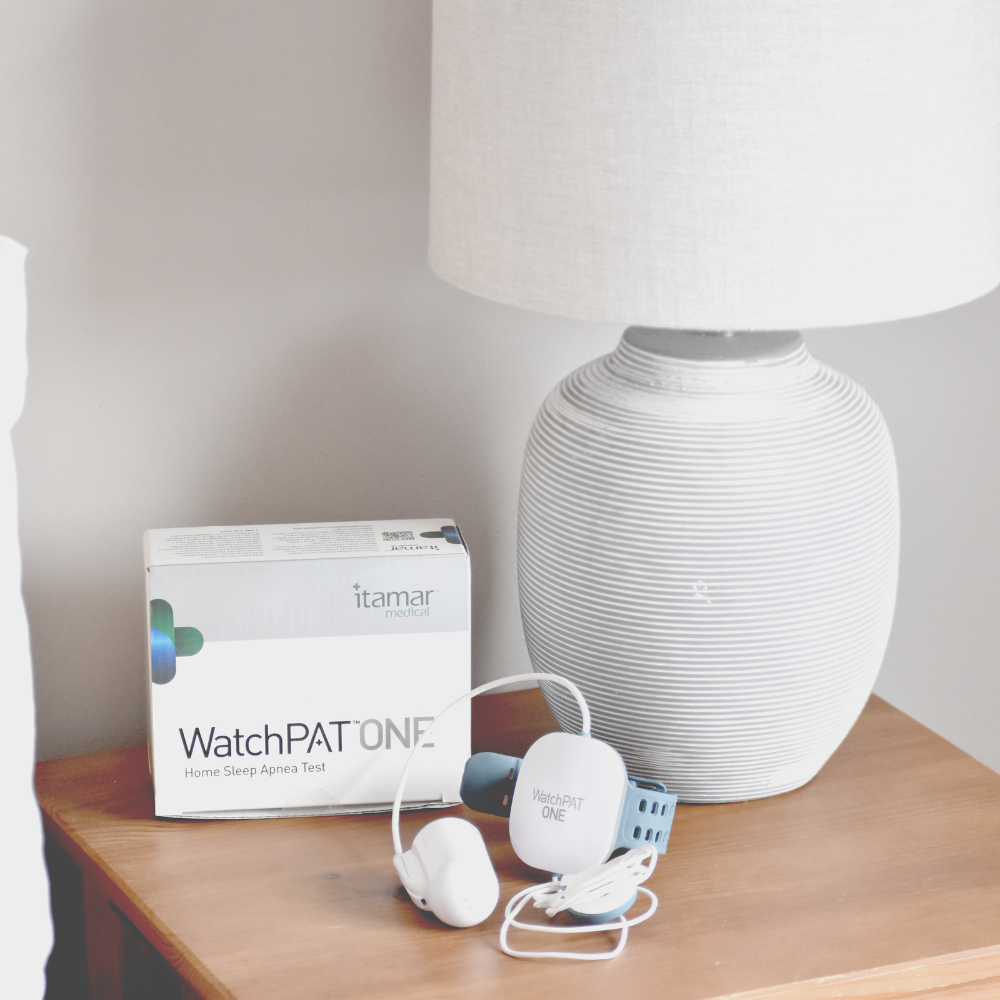Fact Checked
Intus Healthcare’s writers, customer service team, and sleep experts review and ensure this information is accurate.
Last updated on March 28th, 2025 at 02:24 pm
Around 60% of UK adults are either overweight or obese(1).
Weight loss is one of the most common preventable causes of Obstructive Sleep Apnoea (OSA).
Let’s take some time to examine the relationship between weight and OSA.
Table of Contents
Sleep and weight loss
Quality sleep plays a significant role in weight management and can help with weight loss in several ways:
- Regulation of Hunger Hormones: Sleep helps regulate hormones that control hunger and appetite. Inadequate sleep can disrupt the balance of these hormones, leading to increased appetite and cravings for high-calorie, sugary, and fatty foods. Two critical hormones involved are:
- Ghrelin: Ghrelin is often called the “hunger hormone” because it stimulates appetite. Inadequate sleep can lead to higher ghrelin levels, making you feel hungrier.
- Leptin: Leptin is a hormone that signals fullness and reduces appetite. Sleep deprivation can lead to lower leptin levels, causing reduced feelings of fullness.
- Increased Energy Expenditure: While asleep, your body repairs and rejuvenates itself, which requires energy. Deep, restorative sleep can help your body burn calories efficiently at night. A lack of quality sleep can reduce energy expenditure during rest, potentially contributing to weight gain.
- Improved Insulin Sensitivity: Quality sleep is associated with better insulin sensitivity, meaning your body can use glucose (blood sugar) more effectively. Poor sleep can lead to insulin resistance, higher blood sugar levels, increased risk of weight gain, and type 2 diabetes.
- Reduced Stress and Cortisol Levels: Chronic stress and elevated cortisol levels can contribute to weight gain, especially around the abdominal area. Quality sleep helps regulate stress hormones and reduce overall stress levels, which may help prevent weight gain.
In other words, those who cannot rest well or repeatedly awaken due to sleep conditions like Sleep Apnoea will often find it difficult to control their weight. It’s important to note that while quality sleep is a crucial factor in weight management, it’s not a guaranteed method for weight loss on its own. A holistic approach that includes a balanced diet, regular physical activity, stress management, and adequate sleep is the most effective way to achieve and maintain a healthy weight. If you’re struggling with weight management, it’s a good idea to consult a healthcare professional or a registered dietitian who can provide personalised guidance and support.
Does being overweight cause OSA?
Those who are obese are at a much higher risk of developing Obstructive Sleep Apnoea. According to the British Lung Foundation, 40% of people who are obese have Sleep Apnoea(2).
This may be because higher fat levels around the neck and chest can cause the airways to narrow, further exacerbating what might have otherwise been a mild case of OSA.
Many studies have shown a correlation between neck size and OSA, as the amount of fatty tissue deposited around the neck can cause obstructions(3). There are numerous reasons why being overweight increases the risk of developing OSA; here are a few:
- Fat Deposits in the Neck and Throat: Obesity often results in the accumulation of fat deposits in various areas of the body, including the neck and throat. Excess fat in the neck and upper airway can narrow the airway, making it more prone to collapsing during sleep.
- Reduced Airway Muscle Tone: Obesity can lead to decreased muscle tone in the upper airway. Muscles in the throat and tongue play a crucial role in keeping the airway open during sleep. When these muscles are weakened due to obesity, they are less effective at maintaining airway patency.
- Increased Abdominal Fat: Obesity is associated with increased abdominal fat, which can push on the diaphragm. This added pressure can make it harder to breathe and can further contribute to airway collapse during sleep.
- Inflammatory Processes: Obesity is characterized by chronic low-grade inflammation. Inflammation can affect the soft tissues of the throat and airway, making them more susceptible to collapsing during sleep.
- Hormonal Changes: Obesity can lead to hormonal changes, including alterations in levels of certain hormones like leptin and adiponectin. These hormonal changes can affect the regulation of appetite, metabolism, and inflammation, all of which can contribute to Sleep Apnoea.
If you could have OSA, take a simple home sleep test. The affordable test takes just one night to complete from the comfort of your home.

Home Sleep Apnoea Test
The test monitors your heart rate, snoring intensity, blood oxygen levels, body positioning, and more, providing accuracy comparable to testing used in sleep clinics for in-depth sleep analysis.
The simple-to-use test takes just one night to complete, and results are returned within two working days after completion.
Our experienced NHS-qualified sleep professionals independently analyse all studies, providing follow-up advice and support.
Can Sleep Apnoea Contribute to Weight Gain?
Sleep Apnoea can cause weight gain, while weight gain can likewise increase the chances of developing Sleep Apnoea.
Those suffering from untreated Sleep Apnoea will commonly experience the same symptoms that make maintaining a healthy weight difficult. Due to the consistent broken sleep, patients experience excessive sleepiness, making retaining a healthy lifestyle challenging.
They may also be tempted to eat foods high in sugar to obtain short bursts of energy – Increasing the chances of gaining weight.
The risks of OSA and Obesity
We are already aware that those who are obese have higher mortality rates. However, some other chronic illnesses that will often accompany this condition include (but are by no means limited to):
- High blood pressure
- Type 2 (adult onset) diabetes
- Heart disease and strokes
- Joint and mobility problems
- Poor circulation
Overweight individuals are also at a greater risk of developing several cancers.
Sleep Apnoea and weight loss
It’s important to note that while weight loss can positively impact Sleep Apnoea, it will not eliminate the condition. Other treatments, such as continuous positive airway pressure (CPAP) therapy, oral appliances, or surgery, may still be necessary.
If you have the condition and are considering weight loss as a part of your management plan, it’s crucial to consult with a healthcare provider. They can help you develop a personalised approach to weight loss and monitor your progress, considering your specific needs and the severity of your Sleep Apnoea. Addressing other lifestyle factors like alcohol consumption and smoking can also be important in managing your sleep condition.
Why It’s Important to Address Sleep Apnoea Symptoms
Undertaking an In-Home Sleep Test should always be considered if you are suffering with symptoms of OSA.. This overnight examination will indicate whether Sleep Apnoea is present.
If you test positive, highly effective solutions such as using a CPAP machine (Continuous Positive Airway Pressure) can produce long-lasting results.
About Our Editorial Team
Danni is a degree-educated content writer passionate about helping those with Sleep Apnoea sleep better; she works closely with our clinical and customer care teams to ensure that each article is thoroughly researched and accurate.
Her writing aims to inform, support, and advise readers about Sleep Apnoea, helping to raise awareness and promote effective treatment options.
She has written many health-focused articles, reaching hundreds of readers annually, to help people sleep better and live healthier lives.
Lateisha King is an experienced Sleep Clinician with advanced training in polysomnography and respiratory health.
With over six years of experience, including at the prestigious Guy’s and St Thomas’ NHS Foundation Trust Hospital, she has conducted and reviewed more than 500 diagnostic sleep studies.
Her expertise in sleep science ensures that all articles align with the latest data and treatment protocols, providing readers with trustworthy and practical advice to improve their sleep health and overall well-being.
REFERENCES
- Baker, C. (2023, January 12). Obesity statistics – House of Commons Library. Obesity Statistics. Available at: https://commonslibrary.parliament.uk/research-briefings/sn03336/. Accessed: 06.10.23.
- British Lung Foundation. (2015). Obstructive sleep apnoea (OSA) – asthma + lung UK. Obstructive Sleep Apnoea (OSA). Available at: https://www.asthmaandlung.org.uk/sites/default/files/OHE-OSA-health-economics-report—FINAL—v2.pdf . Accessed: 06.10.23.
- Mayo Clinic Q and A: Neck size one risk factor for obstructive sleep apnea (2015).Available at: https://newsnetwork.mayoclinic.org/discussion/mayo-clinic-q-and-a-neck-size-one-risk-factor-for-obstructive-sleep-apnea/. Accessed: 06.10.23.





